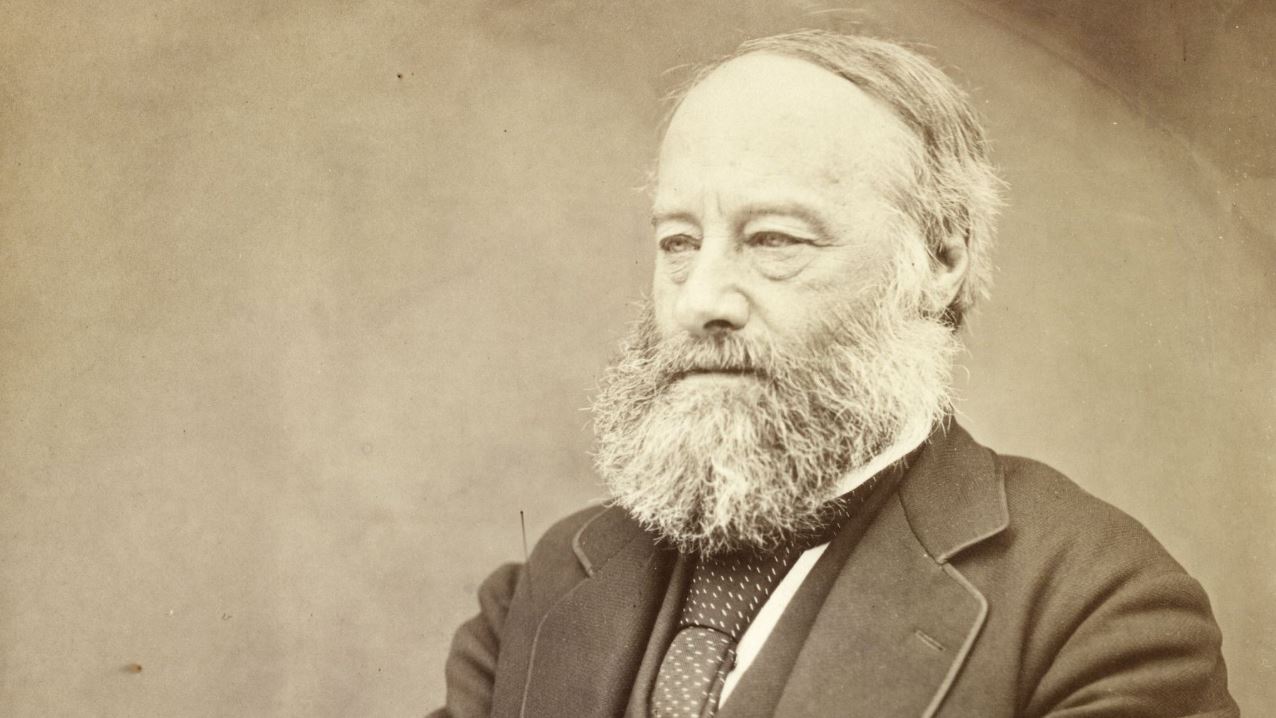
James Prescott Joule was a remarkable scientist whose contributions revolutionized the field of physics. Born on December 24, 1818, in Salford, England, Joule dedicated his life to unraveling the mysteries of energy and establishing the foundations for thermodynamics.
Throughout his career, Joule made numerous groundbreaking discoveries and laid the groundwork for our modern understanding of energy conversion and conservation. His experiments and calculations paved the way for advancements in various fields, including electrical engineering and the study of heat.
In this article, we will delve into 18 enigmatic facts about James Prescott Joule. From his early life and educational background to his significant experiments and influential theories, these facts shed light on the life and work of this remarkable scientist.
Key Takeaways:
- James Prescott Joule was a brilliant scientist who discovered the conservation of energy and the Joule’s law, which are fundamental principles in understanding electricity and heat transfer.
- His work on thermodynamics, electromagnetism, and hydraulics continues to inspire scientists today, shaping our understanding of energy and its applications.
The Early Life of James Prescott Joule
James Prescott Joule was born on December 24, 1818, in Salford, England.
Joule’s Groundbreaking Work on the Conservation of Energy
Joule’s experiments laid the foundation for the principle of the conservation of energy.
Joule’s Collaboration with William Thomson
Joule collaborated extensively with William Thomson, later known as Lord Kelvin, in their efforts to understand the nature of heat and energy.
The Discovery of Joule’s Law
Joule independently discovered what is now known as Joule’s law, which relates the flow of electricity to the heat produced.
Development of the Mechanical Equivalent of Heat
Joule’s experiments on the relationship between mechanical work and heat led to the development of the mechanical equivalent of heat.
Joule’s Pioneering Work on Thermodynamics
Joule made significant contributions to the field of thermodynamics, helping to establish it as a branch of physics.
The Formation of the Joule Society
In 1850, the Joule Society was established in his honor, recognizing his contributions to the field of physics.
Joule’s Development of the First Commercially Successful Electric Motor
Joule’s innovations in the field of electromagnetics led to the development of the first commercially successful electric motor.
The Introduction of the Joule-Thomson Effect
Joule and Thomson discovered the phenomenon known as the Joule-Thomson effect, which describes the cooling or heating of a gas as it expands or contracts at constant enthalpy.
Joule’s Measurement of the Earth’s Magnetic Field
Joule conducted experiments to measure the Earth’s magnetic field, contributing to the understanding of geomagnetism.
Joule’s Important Contributions to Hydraulics
Joule’s work on the flow of fluids and the impacts of turbulence laid the groundwork for modern hydraulics.
The Honorary Doctorates Conferred Upon Joule
Joule received numerous honorary doctorates from prestigious academic institutions, recognizing his groundbreaking contributions to science.
Joule’s Influence on Future Generations of Scientists
Joule’s work continues to inspire scientists and researchers today, shaping our understanding of energy, thermodynamics, and electromagnetism.
The Legacy of Joule’s Law
Joule’s law remains a fundamental principle in the study of electricity and heat transfer.
The Measurement of Energy Units Thanks to Joule
The unit of energy, the joule, was named in honor of James Prescott Joule to recognize his significant contributions to the field of physics.
Joule’s Induction into the Royal Society
James Prescott Joule was elected as a Fellow of the Royal Society in 1850, further cementing his status as a respected scientist.
The Discovery of the Joule Effect
Joule’s experiments on the resistance of conductors led to the discovery of the Joule effect, which explains the conversion of electrical energy into heat.
Joule’s Enduring Impact on Science
The work of James Prescott Joule laid the foundation for modern physics and continues to shape scientific discoveries and advancements.
Conclusion
In conclusion, James Prescott Joule was a remarkable physicist and pioneer in the field of thermodynamics. His contributions to the understanding of energy and heat laid the foundation for modern scientific advancements. From his groundbreaking experiments with the mechanical equivalent of heat to his formulation of the first law of thermodynamics, Joule revolutionized the way we understand and harness energy. His work continues to have a profound impact on multiple fields, including physics, engineering, and even our everyday lives. By unraveling the enigmatic nature of energy, Joule has left a lasting legacy that continues to inspire and shape the world of science.
FAQs
Q: What were James Prescott Joule’s most significant contributions?
A: James Prescott Joule made several significant contributions to the field of physics, but his most notable achievements include the determination of the mechanical equivalent of heat, the formulation of the first law of thermodynamics, and the discovery of Joule’s law, which established the relationship between electrical current, resistance, and heat generated.Q: How did James Prescott Joule determine the mechanical equivalent of heat?
A: Joule conducted a series of experiments using a paddlewheel system immersed in water. By measuring the temperature increase of the water and the work done by the paddlewheel, he was able to establish a quantitative relationship between mechanical work and heat energy, ultimately determining the mechanical equivalent of heat.Q: What is the first law of thermodynamics?
A: The first law of thermodynamics, also known as the law of conservation of energy, states that energy cannot be created or destroyed but can only be transformed from one form to another. This principle laid the foundation for understanding the fundamental principles of energy and its various forms.Q: How did Joule’s law contribute to the development of electrical technology?
A: Joule’s law established the relationship between electrical current, resistance, and the heat generated. This relationship played a crucial role in the development of electrical technology, enabling the design and optimization of electrical systems by understanding the heat dissipation and power loss associated with electrical current flow.Q: How has James Prescott Joule impacted modern science?
A: James Prescott Joule’s contributions to the field of thermodynamics and energy laid the foundation for modern scientific advancements. His work has influenced fields such as physics, engineering, and environmental science. Understanding and applying his principles has revolutionized energy generation, efficiency, and conservation, shaping the way we live, work, and interact with the world today.
James Prescott Joule's groundbreaking work laid the foundation for our understanding of energy and thermodynamics. His pioneering spirit lives on, as scientists continue exploring the intricacies of the Joule-Thomson effect and its implications for gases. Joule's enduring legacy inspires curious minds to delve deeper into the surprising facts surrounding his discoveries, which have shaped our modern world in countless ways.
Was this page helpful?
Our commitment to delivering trustworthy and engaging content is at the heart of what we do. Each fact on our site is contributed by real users like you, bringing a wealth of diverse insights and information. To ensure the highest standards of accuracy and reliability, our dedicated editors meticulously review each submission. This process guarantees that the facts we share are not only fascinating but also credible. Trust in our commitment to quality and authenticity as you explore and learn with us.


